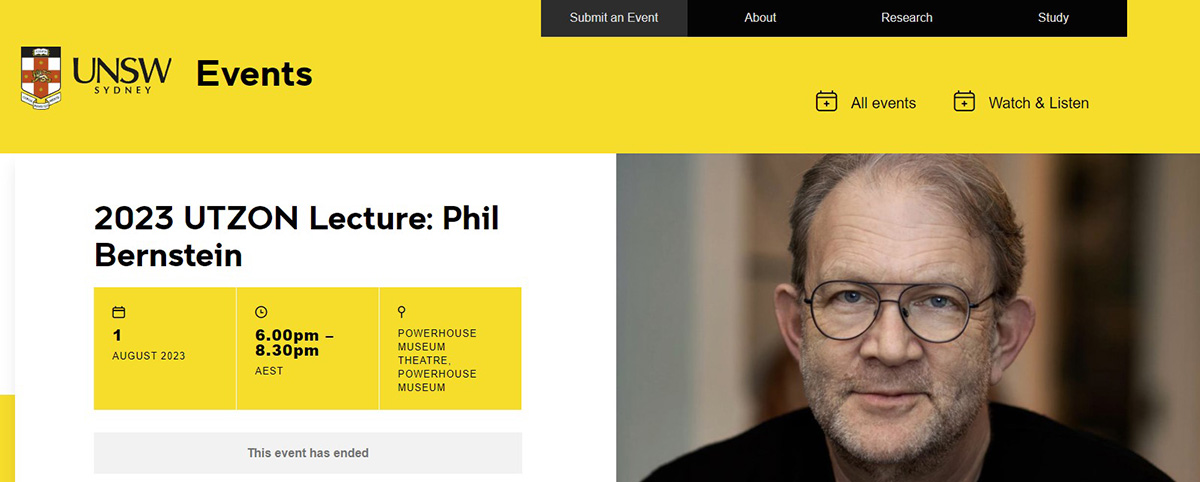In order to address some of my concern about the onward march of AI and its potential impacts on the architecture industry, I attended the UNSW Utzon Lecture at the beginning of August, featuring Phil Bernstein.
https://www.events.unsw.edu.au/event/2023-utzon-lecture-phil-bernstein
“Phil Bernstein is an Associate Dean and Professor Adjunct at the Yale School of Architecture, where he has taught courses in professional practice since 1988. He is a former vice president at Autodesk, where he was responsible for the company’s Building Information Modeling strategy that included the development of the Revit platform."
It is difficult to put into words how impressive and compelling this lecture was as Phil Bernstein is such an accomplished leader in this field and his ability to present was second to none. It was truly inspiring hearing from someone with so much knowledge of the architecture field and BIM in general. As Viz Artist working for myself it can be quite isolating, so hearing about what the current state of play around AI in architecture is from an expert was incredibly valuable.
One of the takeaways that gave me hope was how complex the Architecture and Construction industry is, and while some innovation in AI will happen, it will take at least a decade to be implemented and there is still a world of opportunity to be explored given how fractured the process currently is between clients, architects and builders. There is potentially a lot of ways that BIM and AI could implemented to help create greater communication and efficiencies, but that construction itself is a lot harder control so there will always be a need to find better ways to engage with the built environment.
While I currently focus on the visualisation of projects through 3D renders and animation, there will be a growing need to create realistic presentations of design development that aids and assists in review and construction, however the incredible advance of Generative AI like MidJourney and Stable Diffusion etc will only really impact the conceptual phase of a design in the short to medium term. This is still a huge opportunity in the “visualisation" of projects, even if the “artistic" side of architectural concepts may fall to generative AI tools. This give me a lot of hope as I am now and have always been committed to design development and approval.
While the architecture industry will transform over the next decade, I am hopeful that AI will assist us in better design outcomes and an even greater need for architects and visualisers to manage and deliver on these advances. As Phil Bernstein would hopefully agree, there is so much to be done in the delivery of projects that we will see a great deal opportunity rather than threats by AI. We will have to see.
